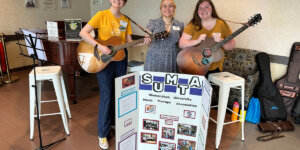Shenandoah University Professor of Nursing Pamela Webber, Ph.D., APRN, BC, FNP, added to her formidable list of accomplishments in 2015 as the author of an acclaimed work of fiction called “The Wiregrass.”
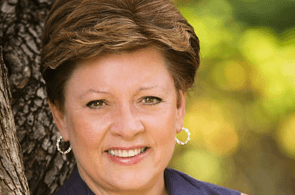 Reviews have drawn comparisons between “The Wiregrass” and classics like “To Kill a Mockingbird” and “Of Mice and Men.” The Historical Novel Society selected it as editor’s choice pick, while the Southern Literary Review (SLR) named it a “Read of the Month.” The SLR’s Phil Jason, writes, “Pam Webber captures the exuberant turmoil of teenage life with a sure hand. She also captures the sight, sounds, smells, and cultural flavors of this southern pocket with consummate skill.”
Reviews have drawn comparisons between “The Wiregrass” and classics like “To Kill a Mockingbird” and “Of Mice and Men.” The Historical Novel Society selected it as editor’s choice pick, while the Southern Literary Review (SLR) named it a “Read of the Month.” The SLR’s Phil Jason, writes, “Pam Webber captures the exuberant turmoil of teenage life with a sure hand. She also captures the sight, sounds, smells, and cultural flavors of this southern pocket with consummate skill.”
On the strengths of the book, Webber will serve as a panelist at the March 16-20 Virginia Festival of the Book in Charlottesville, Virginia. “The Wiregrass” will be one of the featured books.
The basic story that became her debut novel was in her head for decades, but she never the time to write it as she taught, worked as a family nurse practitioner and raised her three children with her husband, Jeff, said Webber, a Shenandoah professor since 1978.
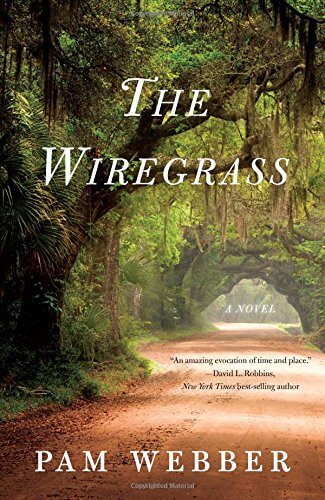 But in recent years, she finally felt that the time was right to pursue the story, set in 1969 and told from the point of view of 14-year-old Nettie, as she spends the summer, as she always has, with her cousins, grandmother and aunt and uncle in a small town in the Deep South. The story doesn’t dwell upon the concerns of the larger world in a socially turbulent era. Instead, “The Wiregrass” is truly a coming-of-age tale that explores issues of family as well as community and individual responsibility. It’s also a rumination on a bygone era for children that evokes a strong feeling of time and place.
But in recent years, she finally felt that the time was right to pursue the story, set in 1969 and told from the point of view of 14-year-old Nettie, as she spends the summer, as she always has, with her cousins, grandmother and aunt and uncle in a small town in the Deep South. The story doesn’t dwell upon the concerns of the larger world in a socially turbulent era. Instead, “The Wiregrass” is truly a coming-of-age tale that explores issues of family as well as community and individual responsibility. It’s also a rumination on a bygone era for children that evokes a strong feeling of time and place.
Webber has a personal connection to “The Wiregrass,” as a triangular-shaped area at the intersection of Alabama, Georgia and Florida is known; where the painfully wiry grass grows and an aquifer creates clear streams in swimming holes in a region where rivers usually run muddy. It’s also where her mom grew up, in south Alabama. And, it’s a place Webber visited regularly, even though she grew up in Amherst, Virginia. Her mother, who infused their home with a Southern feeling through her made-from-scratch meals and needlepoint creations, wanted her children to appreciate and understand their Southern roots, Webber said.
Webber used her own cousins as models for several characters and had them read what she wrote to make sure they approved of the portrayals. One of her cousins, who died at age 48, couldn’t do so, but his widow gave her approval. Webber said she felt as if she didn’t get some of who he was down on paper, “nobody would know what an extraordinary human being he was.”
She didn’t rely on memories, though, to inform the book’s imagery. Instead, she drove the route she and her family used to take, south on U.S. 29, several times. Happily, many of the sights she saw in childhood remained. “It was just like going back in time.” She spent time in the “wiregrass” region, wading in its clear streams and drinking in the atmosphere at Ponce de Leon Springs State Park in Florida, on which she modeled her depiction of springs in the book.
While always a fan of Southern fiction, “The Wiregrass” marks Webber’s first foray into the genre, or into fiction, really. However, that doesn’t mean she isn’t an experienced writer. “As a nurse, I’ve had to publish for the past 30 years,” she said. And whether she’s writing something scientific or a piece of fiction, the process is ultimately the same: everything has a beginning, middle and end. It’s just that in scientific publications, there isn’t much room for figurative language. “It’s kind of, find it, fix it, and move on.”
As a result of her writing within the nursing profession, she developed strong connections with traditional publishers. Still, she didn’t want to give up the rights to her book, as is common in the traditional publishing world. “I wanted more control over the product.” So, on the advice of a publishing-world contact, she reached out to She Writes Press, a woman-owned company that gave her both support and the control she desired. She even found the photo that graces the cover after an intense online search, choosing the image because “That is exactly what the wiregrass looks like.”
Now, with the book available at a wide variety of online and storefront booksellers, Webber isn’t resting on her laurels. A sequel is already in the works, she said.
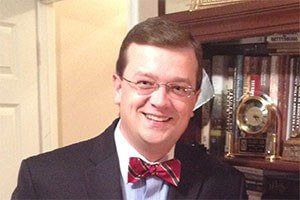 Adjunct Assistant Professor of History Jonathan Noyalas ’01, M.A., was named a statewide Outstanding Faculty Award (OFA) winners for 2016. Noyalas is also an assistant professor of history and the director of the Center for Civil War History at Lord Fairfax Community College. The State Council of Higher Education for Virginia administers the OFA program, which is Virginia’s highest honor for faculty at public and private colleges and universities across the state. Nominees must have a demonstrated record of superior accomplishments in teaching, research, knowledge integration and public service.
Adjunct Assistant Professor of History Jonathan Noyalas ’01, M.A., was named a statewide Outstanding Faculty Award (OFA) winners for 2016. Noyalas is also an assistant professor of history and the director of the Center for Civil War History at Lord Fairfax Community College. The State Council of Higher Education for Virginia administers the OFA program, which is Virginia’s highest honor for faculty at public and private colleges and universities across the state. Nominees must have a demonstrated record of superior accomplishments in teaching, research, knowledge integration and public service.
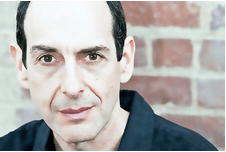 Master Teacher of Acting and Professor of Theatre Larry Silverberg recently launched a new acting masterclass series in partnership with Cast It Talent, one of the two biggest online actor casting services in the world. Silverberg’s work now reaches more than 170,000 actors from around the world. Lessons One, Two and Three are now available. Visit the Cast It Talent website for more information.
Master Teacher of Acting and Professor of Theatre Larry Silverberg recently launched a new acting masterclass series in partnership with Cast It Talent, one of the two biggest online actor casting services in the world. Silverberg’s work now reaches more than 170,000 actors from around the world. Lessons One, Two and Three are now available. Visit the Cast It Talent website for more information.
Professor Emeritus of Conducting James Laster, Ph.D., is keeping busy. He frequently serves as a substitute organist in various churches, playing 40 Sundays in 2015. Paraclete Press has released his composition “Set Me as a Seal” written for the wedding of former Shenandoah colleague, Professor Emeritus of Voice Donna Gullstrand, M.M. He appeared as Peter Quince in Shakespeare’s “A Midsummer Night’s Dream,” performed for two weekends in August in 2015 in the gardens of the Museum of the Shenandoah Valley in Winchester, Virginia. In November 2015, he appeared as Elgin, the butler, in Winchester Little Theatre’s production of Agatha Christie’s “Spider’s Web.” In January 2016, he performed the role of Jack Jameson in Wendy Wasserstein’s play, “Third,” also at Winchester Little Theatre. He also conducted his composition “Rejoice in the Lord,” written for the ordination service of Shenandoah graduate, Karen (King) Cuffie ’82, in San Jose, California.
Professor of Percussion Earl Yowell, M.M., served as a guest artist and clinician with the percussion department at the University of South Carolina (USC) in Columbia, South Carolina, from Nov. 7 through 10, 2015. During his residence, Yowell rehearsed with the USC Percussion Ensemble, culminating in an performance of “Escales,” for solo timpani and percussion ensemble. He also presented a timpani/percussion clinic and taught private lessons with students.
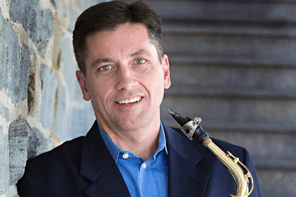 Professor of Saxophone Timothy Roberts, D.M.A., recently was selected to adjudicate the Collegiate Young Artist Competition hosted by the 2016 North American Saxophone Alliance’s Biennial Competition at Texas Tech University in Lubbock, Texas. Roberts has also been invited to perform the U.S. premiere of award-winning Australian composer Matthew Orlovich’s “Hurly Burly” at San Francisco’s Hot Air New Music Festival in March 2016. Later that week, he will also play the piece at the biennial meeting where he’s serving as an adjudicator.
Professor of Saxophone Timothy Roberts, D.M.A., recently was selected to adjudicate the Collegiate Young Artist Competition hosted by the 2016 North American Saxophone Alliance’s Biennial Competition at Texas Tech University in Lubbock, Texas. Roberts has also been invited to perform the U.S. premiere of award-winning Australian composer Matthew Orlovich’s “Hurly Burly” at San Francisco’s Hot Air New Music Festival in March 2016. Later that week, he will also play the piece at the biennial meeting where he’s serving as an adjudicator.
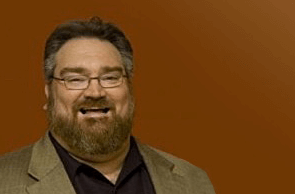 Twenty-five video messages from Santa Claus, featuring Director of Acting and Associate Professor of Theatre J.J. Ruscella, M.F.A., were dubbed in Russian and distributed throughout Russia on Christian television service CNL’s Russian network during the 2015 holiday season. All 25 videos can be found at SantaisReal.com.
Twenty-five video messages from Santa Claus, featuring Director of Acting and Associate Professor of Theatre J.J. Ruscella, M.F.A., were dubbed in Russian and distributed throughout Russia on Christian television service CNL’s Russian network during the 2015 holiday season. All 25 videos can be found at SantaisReal.com.
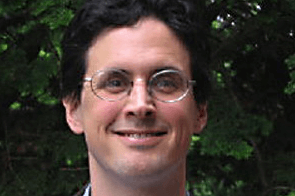 An article by Coordinator of Music Theory and Associate Professor of Music Theory Keith Salley, Ph.D., titled “On Duration and Developing Variation: The Intersecting Ideologies of Henri Bergson and Arnold Schoenberg” was published in the December issue (Vol. 21.4) of Music Theory Online, a peer-reviewed online journal of the Society for Music Theory. The article uses archival and analytical scholarship to investigate relationships between the French philosopher Henri Bergson’s concept of subjective time and the Austrian composer Arnold Schoenberg’s philosophy of developing musical ideas. It presents analytical readings of three of Schoenberg’s compositions that were written around the time that German translations of Bergson’s works were first made widely available. In doing so, the article establishes an intersection between French metaphysics and Austro-German expressionism—an intersection that will hopefully invite further inquiry into this topic. Read the article.
An article by Coordinator of Music Theory and Associate Professor of Music Theory Keith Salley, Ph.D., titled “On Duration and Developing Variation: The Intersecting Ideologies of Henri Bergson and Arnold Schoenberg” was published in the December issue (Vol. 21.4) of Music Theory Online, a peer-reviewed online journal of the Society for Music Theory. The article uses archival and analytical scholarship to investigate relationships between the French philosopher Henri Bergson’s concept of subjective time and the Austrian composer Arnold Schoenberg’s philosophy of developing musical ideas. It presents analytical readings of three of Schoenberg’s compositions that were written around the time that German translations of Bergson’s works were first made widely available. In doing so, the article establishes an intersection between French metaphysics and Austro-German expressionism—an intersection that will hopefully invite further inquiry into this topic. Read the article.
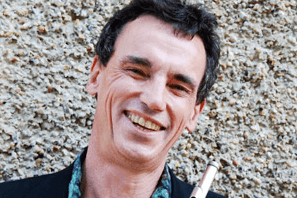 Professor of Flute Jonathan Snowden, A.G.S.M., presented a masterclass for flute students and the band at Handley High School on Friday, Dec. 4. He presented a Jan. 16 recital at Shenandoah Valley Westminster-Canterbury with Professor Emerita of Piano Sue Boyd, and on Jan. 17, he hosted a full day of masterclasses at the Levine School of Music in Washington, D.C.
Professor of Flute Jonathan Snowden, A.G.S.M., presented a masterclass for flute students and the band at Handley High School on Friday, Dec. 4. He presented a Jan. 16 recital at Shenandoah Valley Westminster-Canterbury with Professor Emerita of Piano Sue Boyd, and on Jan. 17, he hosted a full day of masterclasses at the Levine School of Music in Washington, D.C.
 Visiting Associate Professor of Jazz Dance Bob Boross, M.A., served as guest jazz and musical theatre dance teacher from Jan. 6 through 16 at the Boris Eifman Dance Academy and the newly opened Phil LaDuca Russian Broadway Dance Center, both located in St. Petersburg, Russia. His residency as a designated “cultural specialist” was sponsored by the United States Department of State. The Boris Eifman Dance Academy is the school of the world-renowned Eifman Ballet company, which regularly tours the United States. Another recent guest teacher was Akram Khan, the noted English contemporary dance choreographer. Named after Phil LaDuca (the first American to teach theatre dance in Russia in the 1980s), the Phil LaDuca Dance Center is a new initiative to train Russian dancers for a burgeoning Broadway musical theatre movement in Russia. Boross was the first American theatre dance teacher invited to teach.
Visiting Associate Professor of Jazz Dance Bob Boross, M.A., served as guest jazz and musical theatre dance teacher from Jan. 6 through 16 at the Boris Eifman Dance Academy and the newly opened Phil LaDuca Russian Broadway Dance Center, both located in St. Petersburg, Russia. His residency as a designated “cultural specialist” was sponsored by the United States Department of State. The Boris Eifman Dance Academy is the school of the world-renowned Eifman Ballet company, which regularly tours the United States. Another recent guest teacher was Akram Khan, the noted English contemporary dance choreographer. Named after Phil LaDuca (the first American to teach theatre dance in Russia in the 1980s), the Phil LaDuca Dance Center is a new initiative to train Russian dancers for a burgeoning Broadway musical theatre movement in Russia. Boross was the first American theatre dance teacher invited to teach.
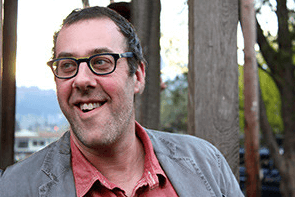 Director of Composition and Coordinator of New Music Jonathan Newman, M.M., participated in the 2015 Midwest Clinic at McCormick Place West in Chicago, Illinois, in December, with fellow composers Eric Whitacre, John Mackey and Steven Bryant. The session, titled “Juilliard: 1996,” explores the history of their friendship, as well as other topics including the creative process, commissioning of new works and more. Learn more.
Director of Composition and Coordinator of New Music Jonathan Newman, M.M., participated in the 2015 Midwest Clinic at McCormick Place West in Chicago, Illinois, in December, with fellow composers Eric Whitacre, John Mackey and Steven Bryant. The session, titled “Juilliard: 1996,” explores the history of their friendship, as well as other topics including the creative process, commissioning of new works and more. Learn more.
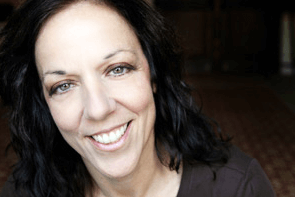 Associate Professor of Theatre Kirsten Trump, M.F.A., narrated a fantasy-adventure book for High Peaks Publishing entitled “Parisa.” “Parisa” is the story of X-Games Snowboarding champion, Scott Locke, a modern-day hero, as he collides with mysteries from an ancient world. It is the first published full-length novel written by her brother, Conrad Trump. The hard copy, digital download and audiobook are available on Amazon.
Associate Professor of Theatre Kirsten Trump, M.F.A., narrated a fantasy-adventure book for High Peaks Publishing entitled “Parisa.” “Parisa” is the story of X-Games Snowboarding champion, Scott Locke, a modern-day hero, as he collides with mysteries from an ancient world. It is the first published full-length novel written by her brother, Conrad Trump. The hard copy, digital download and audiobook are available on Amazon.
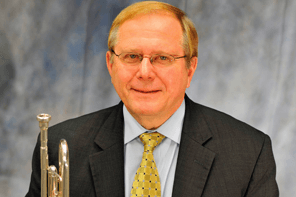 Adjunct Associate Professor of Trumpet Chuck Seipp, D.M.A., was recently selected as a Yamaha Performing Artist.
Adjunct Associate Professor of Trumpet Chuck Seipp, D.M.A., was recently selected as a Yamaha Performing Artist.
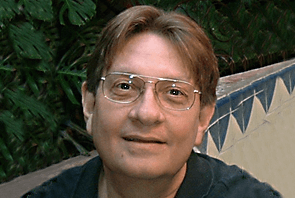 Professor of Cello Clyde Thomas Shaw, M.M., recently concluded his sabbatical (Fall 2015) by finishing his capstone project of recording works for cello and bass by the composers Gliere, Rossini and Schickele. The recording was made in December 2015 in Goodson Chapel – Recital Hall with Coordinator of Strings and Professor of Bass Donovan Stokes, D.M., and engineered and co-produced by Frank Shaw and Jeremiah Shaw ‘11. Jeremiah Shaw earned a Bachelor of Music in Music Production & Recording Technology from Shenandoah Conservatory and currently lives in San Francisco, California.
Professor of Cello Clyde Thomas Shaw, M.M., recently concluded his sabbatical (Fall 2015) by finishing his capstone project of recording works for cello and bass by the composers Gliere, Rossini and Schickele. The recording was made in December 2015 in Goodson Chapel – Recital Hall with Coordinator of Strings and Professor of Bass Donovan Stokes, D.M., and engineered and co-produced by Frank Shaw and Jeremiah Shaw ‘11. Jeremiah Shaw earned a Bachelor of Music in Music Production & Recording Technology from Shenandoah Conservatory and currently lives in San Francisco, California.
Assistant Professor of Pharmacy Practice Kacey Carroll, Pharm.D., CGP, was one of four pharmacists nationwide selected to participate in a Parkinson’s Disease Pharmacotherapy Traineeship offered in 2015 through the American Society of Consultant Pharmacists (ASCP) Foundation. “I was very honored to be among the four chosen,” said Dr. Carroll. “The group of pharmacists that I attended the traineeship with were fantastic — we all represented different aspects of pharmacy and brought a different experience level, and it was great to learn not only from those leading the traineeship but from each other’s experiences as well.” Conducted at the Parkinson’s Disease and Movement Disorders Center at the Northwestern University Feinberg School of Medicine in Chicago, Illinois, the traineeship focused on Parkinson’s disease, although other movement disorders and conditions were also studied. During the traineeship, Carroll saw many different aspects of Parkinson’s care, including medication management, occupational therapy and physical therapy care, clinical trials, and how social workers and nurses care for patients and families. Each clinic patient was unique; the variety in symptoms she encountered helped her better understand the nuances of treatment. Carroll noted that her experiences at the traineeship have positively altered what she teaches. Read more.
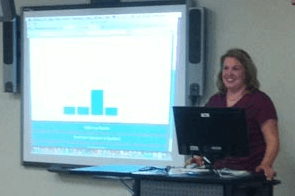 Associate Professor of Curriculum and Instruction Karrin Lukacs, Ph.D., and co-author Tami Augustine (of The Ohio State University) in January announced the release of “Working with Students in Poverty” on iTunes U. The course includes 31 multimodal activities (one for each day of the month) designed to deepen understanding of this critical issue in P-12 education. The release also coincided with January’s Poverty Awareness Month.
Associate Professor of Curriculum and Instruction Karrin Lukacs, Ph.D., and co-author Tami Augustine (of The Ohio State University) in January announced the release of “Working with Students in Poverty” on iTunes U. The course includes 31 multimodal activities (one for each day of the month) designed to deepen understanding of this critical issue in P-12 education. The release also coincided with January’s Poverty Awareness Month.



